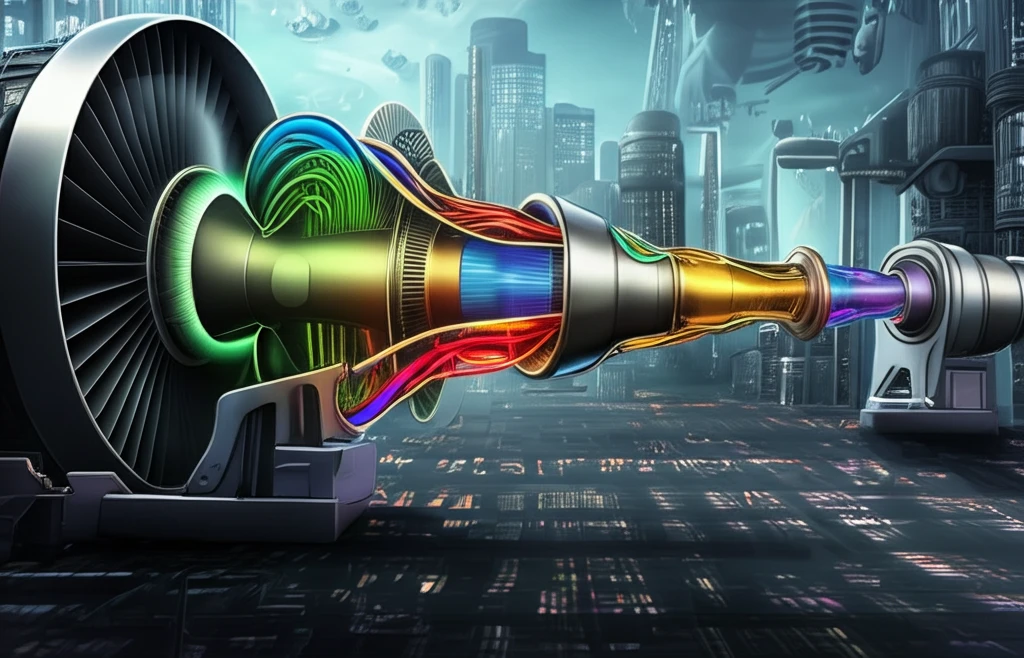
Unlock Sustainable Power: How Fuel Flexibility is Revolutionizing Gas Turbines
"Explore the future of energy with advanced gas turbine technology and its vital role in securing a diversified and eco-friendly fuel landscape."
In today's rapidly evolving energy market, the demand for flexible and sustainable power solutions has never been greater. Gas turbines, traditionally reliant on natural gas, are now undergoing a significant transformation to accommodate a wider range of fuels. This shift is driven by the need to reduce emissions, enhance operational efficiency, and ensure a reliable energy supply amidst fluctuating fuel availability and costs.
The ability to utilize various fuels – from natural gas and liquefied petroleum gas (LPG) to biodiesel and light crude oil – provides a strategic advantage for energy providers. This adaptability ensures consistent power generation, reduces reliance on single fuel sources, and enables the use of cleaner or more economically viable alternatives.
Recent advancements in gas turbine technology, particularly in combustion systems, are making this fuel flexibility a reality. Innovations like the Advanced Environmental (AEV) burner are enabling turbines to operate efficiently and safely with diverse fuel compositions, opening new possibilities for sustainable energy production.
Why Fuel Flexibility Matters: A Greener and More Reliable Energy Future

Fuel flexibility in gas turbines offers a multitude of benefits that address key challenges in the energy sector:
- Economic Viability: Fuel flexibility allows energy providers to take advantage of the most cost-effective fuel sources available, reducing operational expenses and enhancing profitability.
- Energy Security: Diversifying the fuel mix reduces dependence on any single fuel source, mitigating the risk of supply disruptions and price volatility.
- Operational Reliability: Turbines that can seamlessly switch between fuels ensure a consistent power supply, even when primary fuel sources are unavailable or uneconomical.
Embracing the Future of Fuel-Flexible Energy
The journey towards greater fuel flexibility in gas turbines is an ongoing process, with continuous research and development efforts focused on optimizing combustion systems, reducing emissions, and expanding the range of usable fuels. As technology advances and new fuel sources become available, fuel-flexible gas turbines will play an increasingly important role in shaping a sustainable and reliable energy future for all.
